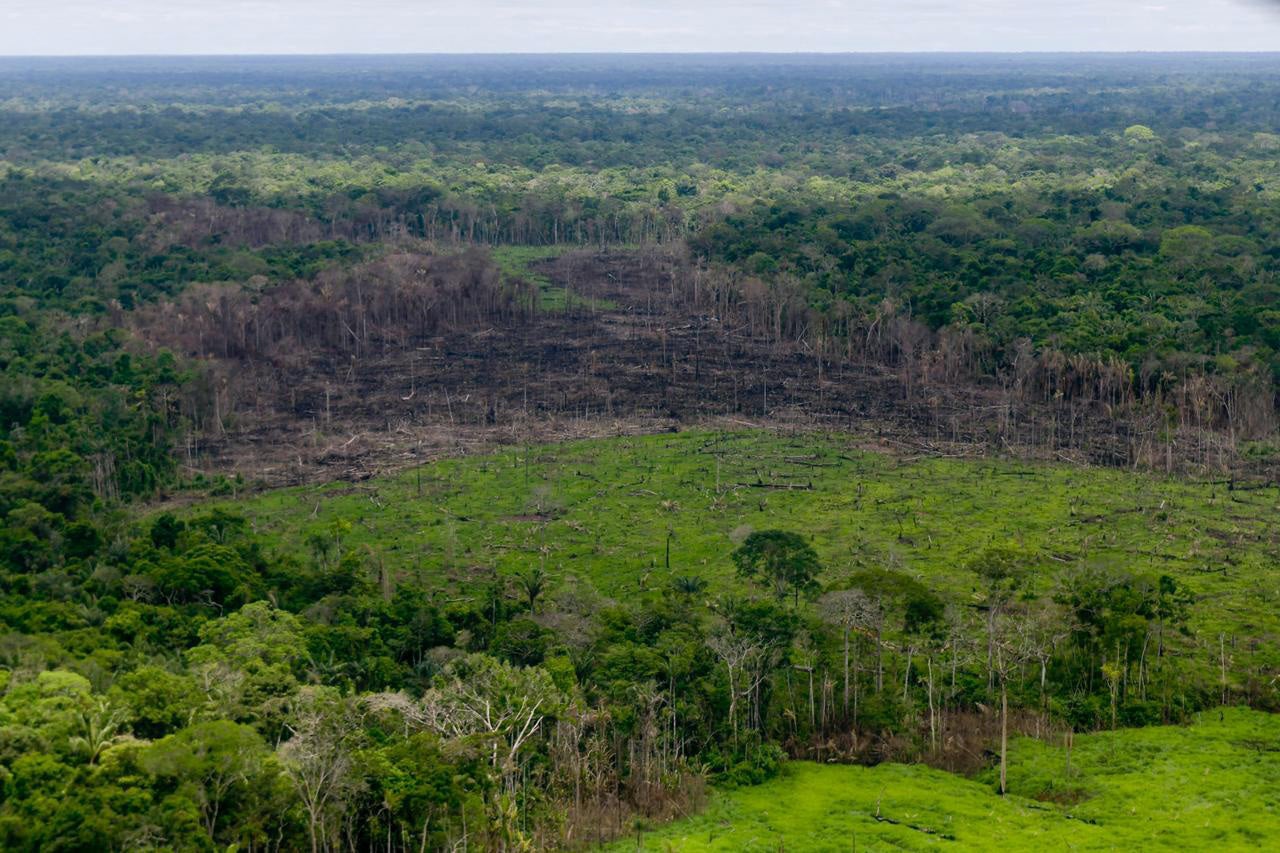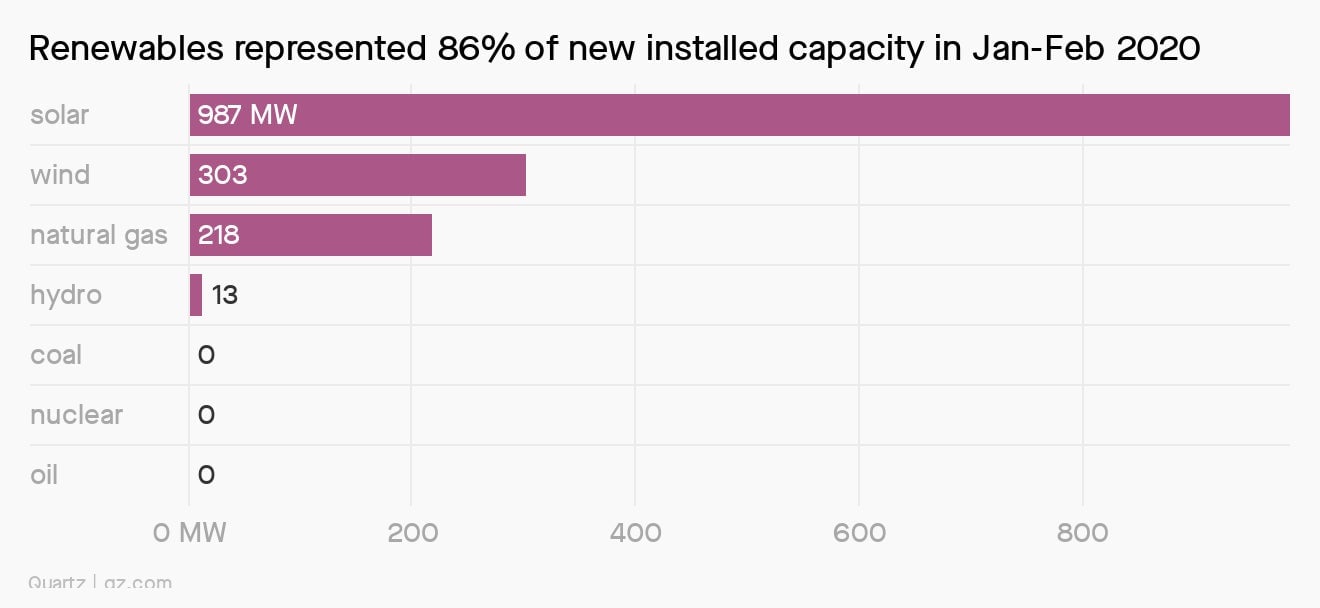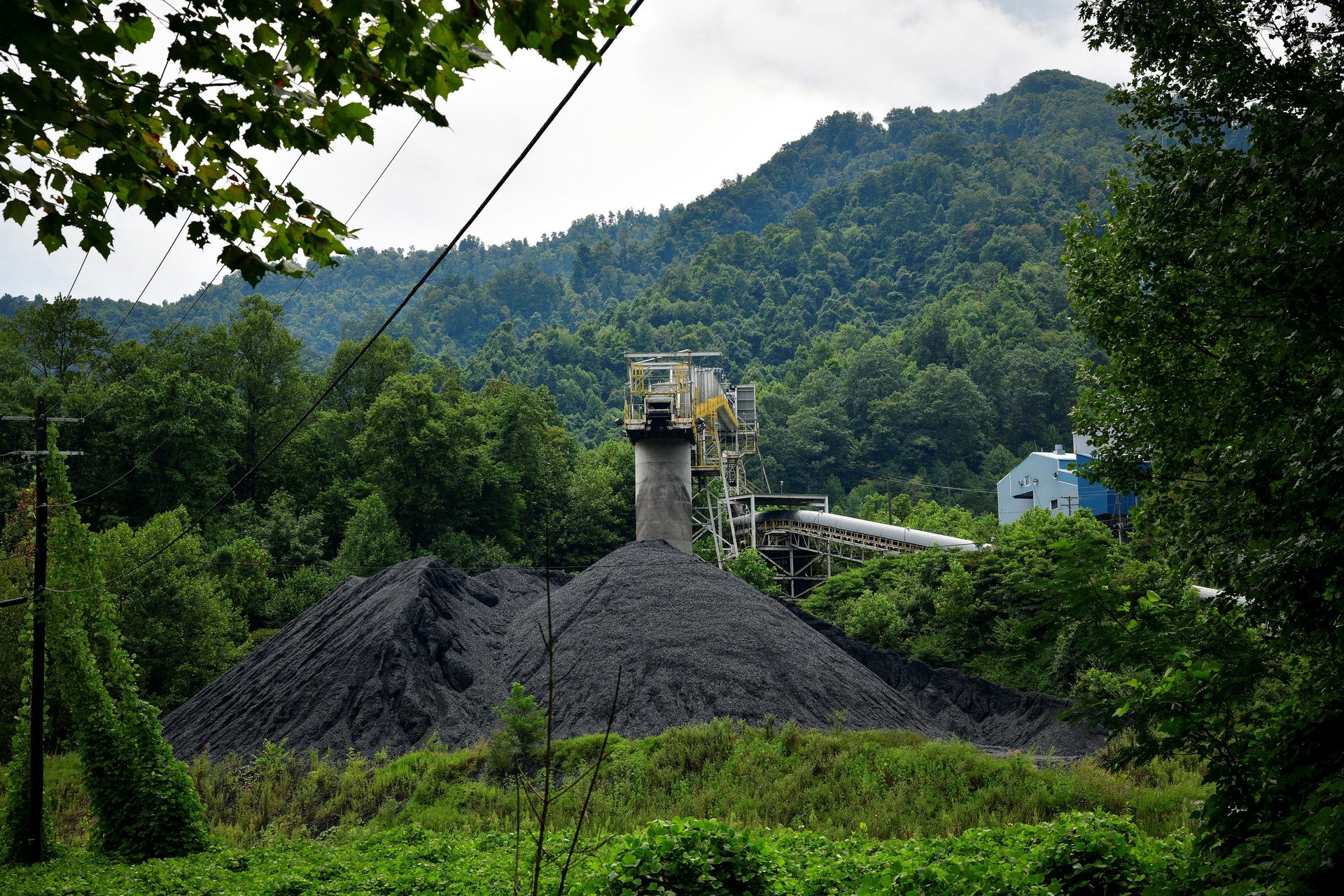The Race to Zero Emissions: thousands of jobs, millions of trees, billions of dollars
Hi everyone, this is Tim McDonnell, a climate and energy reporter who joined Quartz earlier this year. I’ve been reporting on climate change adaptation, global health, and the transition to clean energy for nearly a decade, for publications including National Geographic, National Public Radio, and Mother Jones. I’m excited to be helping out my colleague Michael Coren with Race to Zero Emissions going forward—email me any time with comments and questions. For now, let’s jump into what happened over the past week that helped or harmed the world’s chances of cutting greenhouse-gas emissions to zero.

Hi everyone, this is Tim McDonnell, a climate and energy reporter who joined Quartz earlier this year. I’ve been reporting on climate change adaptation, global health, and the transition to clean energy for nearly a decade, for publications including National Geographic, National Public Radio, and Mother Jones. I’m excited to be helping out my colleague Michael Coren with Race to Zero Emissions going forward—email me any time with comments and questions. For now, let’s jump into what happened over the past week that helped or harmed the world’s chances of cutting greenhouse-gas emissions to zero.

Decreases emissions
1️⃣ Sweden became the third European country to close the last of its coal-fired power plants–and did it two years ahead of schedule. France, Portugal, the UK, Italy, and others have plans to follow suit over the next few years. The US still gets about a quarter of its power from coal.
2️⃣ The record-low price of oil precipitated by coronavirus doesn’t reflect the fossil fuel’s true cost to the planet, French authorities say. Their solution: Institute a new carbon price to make up the difference.
3️⃣ Even without a policy push, the short-term crash could reduce oil production over the long term. Energy companies are delaying so many investments that the global oil supply could fall 6% by 2030.
4️⃣ Morgan Stanley is the latest big bank to block all financing for oil and gas drilling in the Arctic, leaving Bank of America as the odd one out. It’s partly the result of pressure from activists to cut off money for Arctic drilling projects.
5️⃣ In the first two months of 2018, solar and wind accounted for 86% of all new energy installations in the US. The rest was natural gas; coal and oil were out of the picture entirely.

Transitioning public transport
In the US, nationwide ridership on public transit systems is down at least 70% because of the coronavirus shutdown. That has put transit agencies—often strapped for cash in the best of times—at risk of losing up to $40 billion this year, from what the head of American Public Transportation Association called a “double whammy”: Lost fares and dried-up sales taxes because of the economic downturn. Two New York University researchers argue for some remedies: Make transit safer by implementing more cleaning, temperature screening, and mask requirements. And take advantage of the low traffic to upgrade infrastructure and logistics for a rapid post-crisis return of riders.

Net-zero (for now)
1️⃣ The North Pole could be ice-free during the summer well before 2050, according to 40 different climate models run by a global consortium of researchers. That’s even if the world limits emissions enough to keep warming below 2 degrees Celsius.
2️⃣ One of the lowest-tech ways to suck up carbon from the atmosphere: Plant more trees. The government of Colombia wants to plant 180 million trees by 2022. But ecologists warn the country may not have the resources to keep them alive.
3️⃣ Mom-and-pop oil producers are facing a wave of bankruptcies in the US as a result of record-low oil prices. Now their peers in Russia are facing the same fate.
4️⃣ A coalition of 60 German companies, including ThyssenKrupp and the major electric utility E.ON are demanding that any coronavirus stimulus money be tied to new corporate climate commitments.
5️⃣ A global phase-out of coal energy would hurt some economies, like Australia’s, that rely on its production. But the net economic benefits, including reduced spending on pollution-related public health problems, would outweigh those costs, according to a new paper—especially in coal-dependent countries like India and China.
Will coal be uninsurable?
The coal industry was already facing a financial crisis and bleak future before plummeting electricity demand forced many mines to suspend operations. Now, Moody’s says the pandemic will “likely push a significant amount of coal capacity into bankruptcies.” These factors, plus social pressure to fight climate change, has a growing number of insurance companies bailing on the coal industry. At least 19 insurers, including major companies like Allianz and Swiss Re, are refusing or restricting coverage for coal companies, according to one advocacy group (pdf). The movement got a boost Monday when New York City comptroller Scott Stringer, who controls the city’s pension funds, urged Berkshire Hathaway and two other major insurers to stop underwriting coal projects.

🔼 Increases emissions
1️⃣ Since 2014, Pennsylvania has required fracking companies to record their methane emissions quarterly—and an analysis of those reports finds emissions could be 15% higher than official estimates. Another study in Texas, using satellite data, also found methane emissions were widely underestimated.
2️⃣ With oil demand obliterated, storage space for crude is running perilously low—except on tanker ships, which are reaping a windfall charging oil companies $200,000 per day for storage.
3️⃣ The US clean energy sector lost at least 106,400 jobs in March, as tax credits face an uncertain future and companies cut spending. The losses—for builders of electric vehicles, installers of solar panels, energy efficiency retrofitters, and more—could reach 500,000 by summer.

4️⃣ Meanwhile, the coronavirus shutdown could wipe out 30% of India’s planned wind energy installations. India is ranked fourth globally for installed wind turbines, after China, the US, and Germany.
5️⃣ More than 200 million years ago, the end-Triassic extinction event wiped out 80% of all species on land and in the sea, largely because of greenhouse gas emissions from massive volcanic eruptions. By the end of this century, a study suggests humans will have matched those emissions.
Stats to remember
As of April 26, the concentration of carbon dioxide in the atmosphere was 416.12 ppm. A year ago, the level was 413.68 ppm.
For Quartz members
As millions of people find themselves confined to their homes, they are embracing modes of exercise that have roots that stretch back much further than the exercise tape and home yoga mat.
Have a great week ahead. Please send feedback and tips to [email protected].